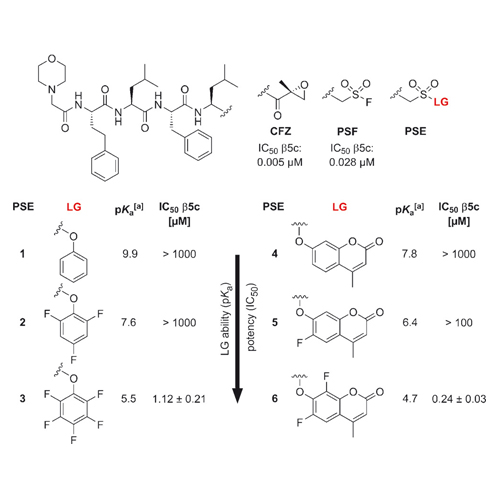Tunable Probes with Direct Fluorescence Signals for the Constitutive and Immunoproteasome
22-Sep-2016
Angew. Chem. Int. Ed., Volume 55, Issue 42, Pages 13330–13334, DOI: 10.1002/anie.201605753
Angew. Chem. Int. Ed., online article
Electrophiles are commonly used for the inhibition of proteases. Notably, inhibitors of the proteasome, a central determinant of cellular survival and a target of several FDA-approved drugs, are mainly characterized by the reactivity of their electrophilic head groups. We aimed to tune the inhibitory strength of peptidic sulfonate esters by varying the leaving groups. Indeed, proteasome inhibition correlated well with the pKa of the leaving group. The use of fluorophores as leaving groups enabled us to design probes that release a stoichiometric fluorescence signal upon reaction, thereby directly linking proteasome inactivation to the readout. This principle could be applicable to other sulfonyl fluoride based inhibitors and allows the design of sensitive probes for enzymatic studies.











